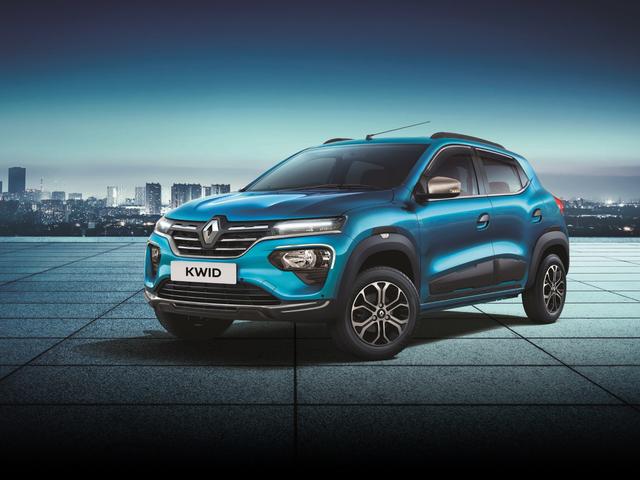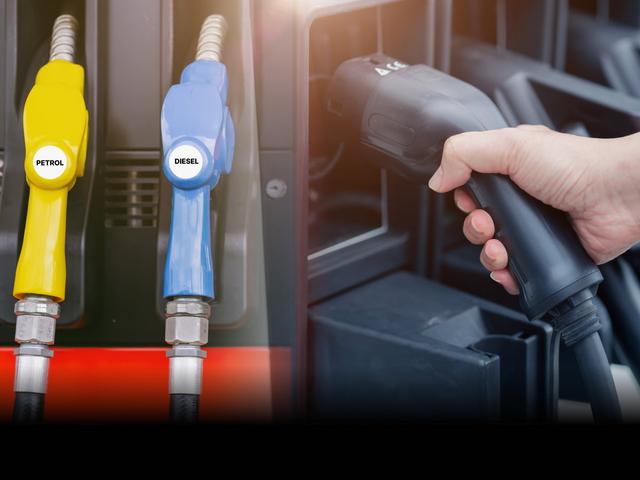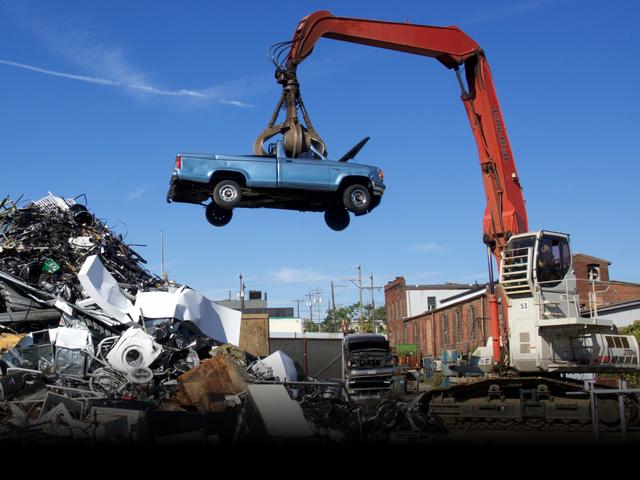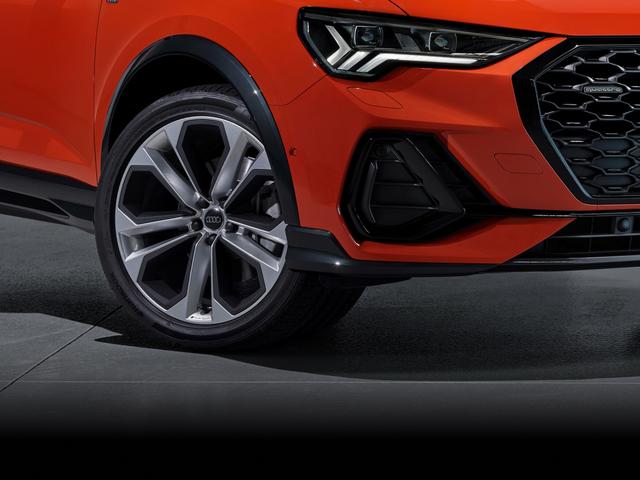


Blink blink !
Its almost here


Audi India Tyre Pressure Guide: Recommended PSI for Optimal Performance
- 1Audi’s range of nine vehicles in India includes four sedans and five SUVs
- 2Tyre sizes range from 17-inches on the A4 to 23-inches on the RS Q8
- 3Recommended Audi cars tyre pressure range from 33 psi to 41 psi
Audi India’s range of vehicles spans sedans, SUVs, electric cars and high-performance cars. Accordingly, the wheel and tyre sizes on offer differ greatly between each model type. Using the manufacturer recommended tyre pressures is important in achieving the best blend of ride comfort, safety, fuel efficiency and performance. Variations in tyre pressure can be carried out due to ambient temperature, road conditions and more.
Generally, it’s safer to follow the tyre pressures as specified in your owner’s manual, or on the door sill of your Audi vehicle. If you’re looking for the manufacturer recommended tyre pressure for an Audi car sold in India, you’ve come to the right place.
Audi cars tyre pressure
There is no one-size-fits-all recommended tyre pressure as each Audi model and each wheel/tyre size has a specific tyre pressure that offers the best of all of the above. Depending on the purpose of the car and preference of driver and passengers, it is possible to vary up or down from the tyre pressures recommended by Audi for each model.
It is important to keep in mind, however, that improving one aspect of a car’s behaviour will usually affect another. As of 2024, most Audi cars in India are being offered without a spare tyre as standard. Instead a tyre repair kit and tyre inflator are bundled with the car. A space saver spare tyre is available as an extra purchase from the dealership. Check with your dealership for more details regarding your specific model.
Audi Q3/Q3 Sportback tyre pressure

The Audi Q3 SUV is currently the most affordable Audi available in India. The Q3 rides on 18-inch alloy wheels. The Q3 is also available in a Sportback body style, with the same wheel/tyre specifications.
| Audi Q3/Q3 Sportback | |
| Wheel Type | 18-inch alloy wheels |
| Tyre Size | 235/55/R18 |
Front Tyre Pressure (Normal load / Maximum load) | 33 psi |
Rear Tyre Pressure (Normal load / Maximum load) | 33 psi |
| Spare | Space saver |
| Tyre Size 145/80 R18 | |
| Tyre Pressure 61 psi |
Audi Q5 tyre pressure

The Audi Q5 is the brand’s long-running offering to compete with other mid-size luxury SUVs in the segment. It is available in two variants — Premium Plus and Technology, both using the same size 19-inch alloy wheels and tyre sizes.
| Audi Q5 Premium Plus/Technology | |
| Wheel Type | 19-inch alloy wheels |
| Tyre Size | 235/55/R19 |
Front Tyre Pressure (Normal load / Maximum load) | 33 psi |
Rear Tyre Pressure (Normal load / Maximum load) | 33 psi |
| Spare | Space saver |
| Tyre Size 195/75 R18 | |
| Tyre Pressure 51 psi |
Audi Q7 tyre pressure

The full-size Audi Q7 luxury SUV has been a staple since the brand’s entry to India. It is available in two trims, Premium Plus and Technology, both shod with 19-inch wheels and the same tyre sizes.
| Audi Q7 Premium Plus/Technology | |
| Wheel Type | 19-inch alloy wheels |
| Tyre Size | 255/55/R19 |
Front Tyre Pressure (Normal load / Maximum load) | 38 psi |
Rear Tyre Pressure (Normal load / Maximum load) | 38 psi |
| Spare | Space saver |
| Tyre Size 195/65 R20 | |
| Tyre Pressure 51 psi |
Audi Q8/RS Q8 tyre pressure

The flagship SUV of the range, the Audi Q8 is available in two distinct variants — the regular 55 TFSI and the supercar-baiting RS Q8. The wheel and tyre specs differ quite significantly between the two so make sure to follow the correct Audi recommended tyre pressures.
| Variant | Audi Q8 | Audi RS Q8 |
| Wheel Type | 21-inch alloy wheels | 23-inch alloy wheels |
| Tyre Size | 285/45/R21 | 295/35 R23 |
Front Tyre Pressure (Normal load / Maximum load) | 36 psi | 39 psi |
Rear Tyre Pressure (Normal load / Maximum load) | 39 psi | 39 psi |
| Spare | Space saver | N/A |
| Tyre Size 195/70 R20 | N/A | |
| Tyre Pressure 51 psi | N/A |
Audi Q8 e-tron/Q8 Sportback e-tron tyre pressure

The all-electric Audi Q8 e-tron is available in two body styles and two variants, the latter offering different powertrains for varying range/performance figures. There is a slight variance in tyre aspect ratio between the two body styles, though recommended tyre pressures stay similar. Both the powertrain variants in either body style, the e-tron 50 quattro and e-tron 55 quattro, are shod with the same size tyres.
| Variant | Audi Q8 e-tron 50/55 | Audi Q8 Sportback e-tron 50/55 |
| Wheel Type | 20-inch alloy wheels | 20-inch alloy wheels |
| Tyre Size | 255/55/R20 | 255/50/R20 |
Front Tyre Pressure (Normal load / Maximum load) | 35 psi | 35 psi |
Rear Tyre Pressure (Normal load / Maximum load) | 38 psi | 38 psi |
| Spare | Space saver | N/A |
| Tyre Size 195/70 R20 | N/A | |
| Tyre Pressure 51 psi | N/A |
Audi A4 tyre pressure

The Audi A4 sedan is the brand’s smallest sedan on offer in the country since the A3 was discontinued. It’s available in one single fully-loaded variant powered by a 2.0-litre petrol engine, with 17-inch alloy wheels.
| Audi A4 | |
| Wheel Type | 17-inch alloy wheels |
| Tyre Size | 225/50/R17 |
Front Tyre Pressure (Normal load / Maximum load) | 36 psi |
Rear Tyre Pressure (Normal load / Maximum load) | 33 psi |
| Spare | Space saver |
| Tyre Size 125/70 R19 | |
| Tyre Pressure 61 psi |
Audi A6 tyre pressure

The Audi A6 luxury sedan is offered in one 45 TFSI powertrain variant in India and two trim options — Premium Plus and Technology. Both are fitted with the same size 18-inch alloy wheels.
| Audi A6 | |
| Wheel Type | 18-inch alloy wheels |
| Tyre Size | 225/50/R18 |
Front Tyre Pressure (Normal load / Maximum load) | 41 psi |
Rear Tyre Pressure (Normal load / Maximum load) | 38 psi |
| Spare | N/A |
| Tyre Size N/A | |
| Tyre Pressure N/A |
Audi S5/RS5 Sportback tyre pressure

The Audi S5 and RS5 Sportback are performance models based on the Audi A5. The S5 and RS5 utilise different engines with the RS5 offering more horsepower and performance, though both models are specified with 19-inch alloy wheels. The RS5 features wider rubber to help put the power down and slightly different recommended tyre pressures.
| Variant | Audi S5 | Audi RS5 |
| Wheel Type | 19-inch alloy wheels | 19-inch alloy wheels |
| Tyre Size | 255/35/R19 | 265/35/R19 |
Front Tyre Pressure (Normal load / Maximum load) | 38 psi | 38 psi |
Rear Tyre Pressure (Normal load / Maximum load) | 32 psi | 35 psi |
| Spare | Space saver | N/A |
| Tyre Size 125/70 R19 | N/A | |
| Tyre Pressure 61 psi | N/A |
Audi e-tron GT/RS e-tron GT tyre pressure

The flagship electric vehicle in Audi India’s portfolio, the Audi e-tron GT and RS e-tron GT offer electrifying performance. Surprisingly the RS e-tron GT with more performance on tap carries the same wheel/tyre specifications as the regular e-tron GT.
| Variant | Audi e-tron GT | Audi RS e-tron GT |
| Wheel Type | 20-inch alloy wheels | 20-inch alloy wheels |
| Tyre Size | 245/45/R20 285/40/R20 | 245/45/R20 285/40/R20 |
Front Tyre Pressure (Normal load / Maximum load) | 36 psi | 36 psi |
Rear Tyre Pressure (Normal load / Maximum load) | 33 psi | 33 psi |
| Spare | Space saver | N/A |
| Tyre Size 155/70 R20 | N/A | |
| Tyre Pressure 60 psi | N/A |
Things to keep in mind while filling air in the tyres
- The manufacturer-recommended tyre pressures are cold tyre pressures. This means that the car must have stood still for at least 2 hours
- If you must drive the car before checking tyre pressures, tyres are still considered cold if run under 2 kilometres at slow speeds
- When hot, tyre pressures increase dramatically. Do not fill air in the tyres if the car has been in use, especially on hot days. It can lead to incorrect tyre pressures being filled
- If you check a hot tyre’s air pressure and find it high, that’s normal. Do not let out air from warm tyres. Air pressure increases with temperature so it’s normal for tyres to display increased pressures
- If you have to fill air when the tyres are warm then as a general rule, add 4 psi to the recommended cold tyre pressures
The correct tyre pressure will help improve fuel economy, optimise braking performance and offer good ride quality. Regularly checking your tyre pressures is a good practice to ensure consistent tyre performance and wear.
Frequently Asked Questions
Expand all

Blink blink !
Its almost here













.jpg&w=640&q=75)









Blink blink !
Its almost here





.webp&w=828&q=75)






